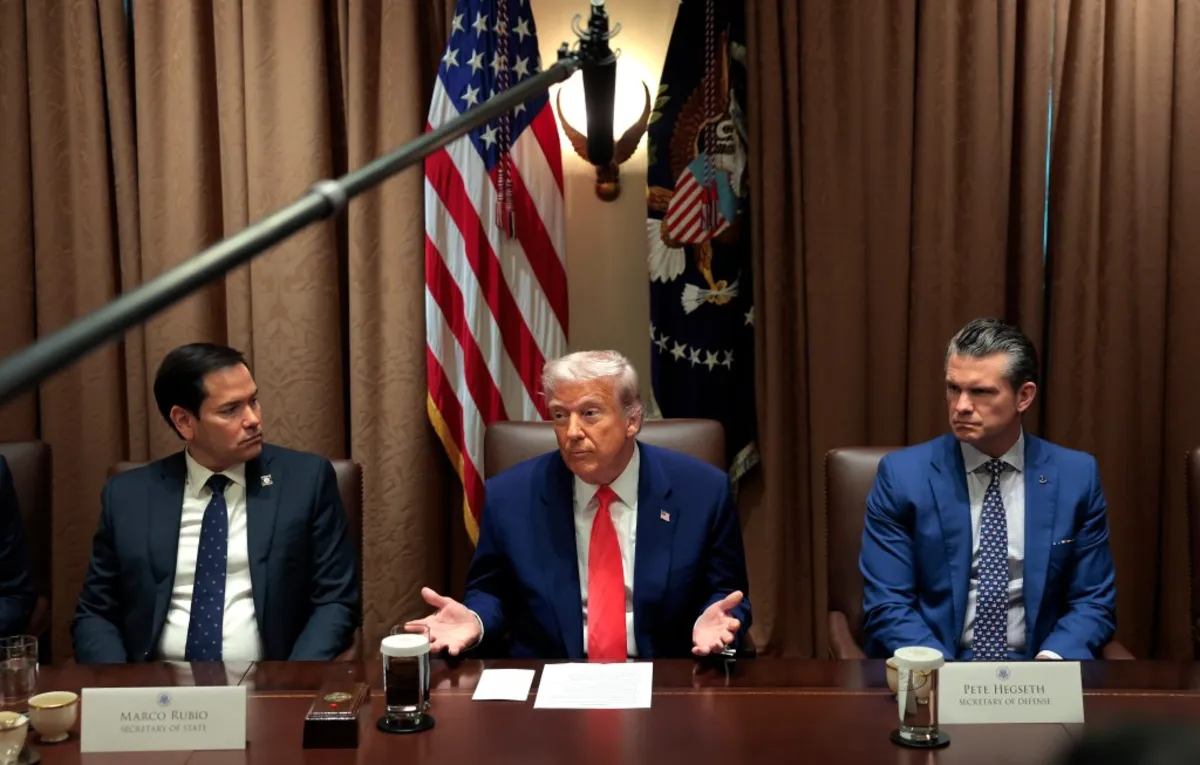
In a recent Cabinet meeting, President Donald Trump addressed China’s decision to impose limitations on the import of American films, amidst a growing trade conflict. His reaction was somewhat dismissive as he remarked, “I think I’ve heard of worse things,” prompting laughter from the secretaries present at the meeting.
The China Film Administration officially announced its plan to reduce the number of American films allowed into the country. This confirmation came as no surprise, following earlier rumors that circulated during the ongoing tariff escalations between the U.S. and China. The Chinese authorities stated, “The wrong action of the U.S. government to abuse tariffs on China will inevitably further reduce the domestic audience’s favorability towards American films.” They emphasized their commitment to “follow the market rules” and respect audience preferences by moderating the number of American films imported into China.
The backdrop to this film import policy is a significant increase in tariffs between the two nations. President Trump has raised tariffs on goods imported from China to 145%, while China has retaliated with proposed tariffs of 84% on U.S. imports. This tit-for-tat trade war has intensified, affecting various sectors, including the film industry, which is facing tighter restrictions in one of its largest international markets.
Trump’s seemingly nonchalant response to China’s film import limitations may stem from his long-standing discontent with Hollywood. Over the years, many in the entertainment industry have publicly supported Trump’s Democratic rivals, which may contribute to his indifference towards their concerns. Before his second term commenced, Trump designated three Hollywood figures—Mel Gibson, Sylvester Stallone, and Jon Voight—as his “special ambassadors to Hollywood.” Their mission was to revitalize the entertainment sector, which Trump claimed had lost substantial business to foreign competition, stating his goal was to bring Hollywood “BACK—BIGGER, BETTER, AND STRONGER THAN EVER BEFORE!”
China maintains a strict quota system that permits only 34 foreign films to be imported each year. This system is designed to protect its domestic film industry while regulating international content. The distribution of revenue from these films is also shared, further complicating the landscape for American films seeking to enter the Chinese market.
As the trade war continues to unfold, the implications for the American film industry and its relationship with China remain uncertain. The evolving dynamics between the U.S. and China will significantly influence the future of film imports and the global entertainment market.